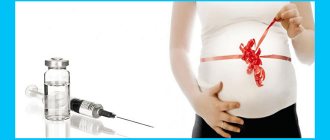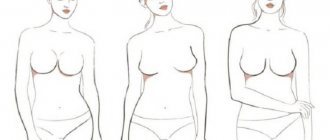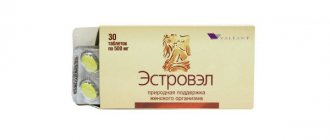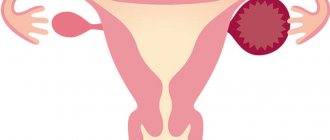Vitamin E, or tocopherol, plays a significant role in the body, helping to improve blood counts, protect vessel walls from harmful atherosclerotic plaques, and liver function. For women, it is especially important, as it normalizes the menstrual cycle, promotes pregnancy and childbearing, and also protects the mammary gland from harmful effects. Read more in our article on vitamin E for women.
What is vitamin E for?
Tocopherol is a fat-soluble vitamin, so its maximum content is in lipids. The main functions (properties) of vitamin E in the body of women are as follows:
- Part of the antioxidant system. It protects the body from damage at the cellular level. Well-established functioning of the antioxidant system is the key to good immunity, excellent skin and hair condition, and protection against various diseases.
- Tocopherol protects the walls of all blood vessels from damage, thereby preventing the development of atherosclerosis and circulatory disorders. Normal readings of vitamin E help the body, even in conditions of high cholesterol levels, reduce the likelihood of plaque formation on its walls. Tocopherol also has an antispasmodic effect at the capillary level.
- Vitamin E is involved in the metabolism of oxygen in tissues. Thanks to it, they are better saturated and, as a result, function longer.
- Normal concentrations of Tocopherol ensure good absorption of other vitamins, for example A, so you can often find a complex with a “double” composition - Aevit.
- Vitamin E increases the resistance of red blood cells to destruction, which is a kind of prevention of anemia.
- Tocopherol protects the liver and helps it function normally.
For women, such a property of vitamin E is especially important as the fact that it has a gestagen-like effect. This means that its benefits, in addition to its main directions, are as follows:
- normalizes the menstrual cycle, leading to balance in the levels of hormones of the first and second phases;
- “protects” the mammary gland from various diseases - mastopathy, fibroadenomas and even cancer;
- promotes conception and successful pregnancy.
By maintaining normal vitamin levels, you can guarantee the following:
- slowing down the aging process;
- good appearance with minimal wrinkles;
- high endurance, including due to high-quality blood supply to tissues with oxygen;
- reducing the likelihood of developing atherosclerosis;
- improving the functioning of the reproductive system - increasing the chances of conception and successful pregnancy;
- It will be possible to protect your breasts from hormonal imbalances and diseases.
We recommend reading about the benefits of ascorbic acid for menstruation. From the article you will learn about the effect of ascorbic acid on the menstrual cycle, the use of vitamin C to stimulate menstruation, and possible complications.
And here is more information about the reasons for the delay and methods for correcting the menstrual cycle.
Tocopherol and prevention of various diseases
Benefit for women
- slows down skin aging;
- increases the bioavailability of retinol;
- prevents cancer of the uterus and ovaries;
- stabilizes the production of female sex hormones;
- prevents diseases of the mammary glands.
In case of menstrual irregularities, vitamin E takes control of the synthesis of estrogen, helping the body eliminate the problem.
Tocopherol is one of the most important vitamins used in gynecology. It is needed for successful conception and full development of the fetus.
Vitamin E controls the blood supply to the placenta, providing the baby with sufficient oxygen and nutrients.
Shortage in women
- general weakness;
- cycle disorders;
- premature menopause;
- dryness and flaking of the skin;
- decreased muscle activity;
- brittle nails and hair;
- obesity;
- difficulty conceiving.
The minimum daily intake of vitamin E for women is 15 mg. For pregnant women, it increases to 100-200 mg, and sometimes to 400 mg.
To speed up menstruation, vitamin E should be taken in the morning after meals, 200-400 mg. For preventive purposes, tocopherol is prescribed from the 15th day of the cycle until the start of menstruation.
If menstruation is delayed, use should be continued until it appears. To prevent delays, it is recommended to take vitamin E during each cycle.
Vitamin E alleviates a woman's condition during menopause by enhancing the synthesis of sex hormones. This partially eliminates the cause of menopause.
Vitamin E is prescribed in a dose of 100-200 mg in a course of 10-15 days, 4-5 times a year. It is recommended to alternate taking the “pure” drug with multivitamin complexes.
It has been proven that taking vitamin E stabilizes the menstrual cycle and ensures full ovulation every month. This effect is achieved by stimulating the synthesis of estrogen.
During lactation, vitamin E is needed to meet the baby's needs and speed up the recovery of the mother's body after childbirth. It is prescribed at a dose of 100-200 mg per day, for a course of 10-15 days, with a break of 1.5-2 months.
In order for the use of a vitamin supplement to have a positive effect on the female body and bring it benefits, it is important to consider the recommendations for the use of the drug:
- Vitamin E, present in fresh cabbage, seeds, liver, legumes, egg yolk, dairy products, oils and almonds, is effectively absorbed by the body.
- For tocopherol to work at full capacity, it is recommended to take it together with carotene.
- It is undesirable to use vitamin E together with minerals, with drugs that contain iron, with anticonvulsants, since when used together, the effect of tocopherol is canceled.
The daily dose of the drug is: 400-600 IU.
With regular use of tocopherol, the following changes are observed:
- Improving the functioning of the reproductive system,
- Elimination of problems associated with the endocrine system,
- Elimination of toxicosis in pregnant women,
- With PMS, reducing hypersensitivity of the mammary glands, removing excess fluid, getting rid of fatigue and nervousness, improving sleep,
- Removing toxins and free radicals from the body, which, in turn, leads to the protection of cells, maintaining sufficient water balance in them,
- Strengthening blood vessels, improving the functioning of the circulatory system, normalizing the supply of nutrients to the body,
- Lowering high blood pressure, reducing oxidation processes in blood sugar levels,
- Rapid healing of soft tissues: wounds, cuts, scars,
- Increased performance,
- Good absorption of vitamin A by the body.
If you take vitamin supplements daily and correctly, you can protect your body from the development of various diseases, extend your life, and also maintain youth.
Nowadays, maintaining youth is not so difficult, doing this with the help of proper nutrition, fitness and a variety of drugs containing minerals and vitamins necessary to maintain youth, health and beauty.
Tocopherol is the main substance that protects cells from destruction and prevents them from aging and premature death. If there is not enough of it in the body, cells are exposed to toxic substances and quickly die. The vitamin supplement prevents the formation of blood clots and improves blood clotting, as well as oxygen exchange in blood vessels.
Lack of vitamin E in women after 40 years of age negatively affects the condition of the skin, nervous and reproductive systems. Mood swings are often observed, causeless irritability, weakness, and nervousness appear. Women become prone to bouts of depression, libido decreases, and the menstrual cycle fails.
Therefore, vitamin E is included in all kinds of nourishing creams, lotions, and shampoos that strengthen hair follicles and promote the growth of beautiful, healthy, thick hair. The supplement so necessary for the body is contained in vegetable oils: olive, pumpkin, sunflower, corn and wheat germ.
Vitamin E in bubbles or capsules is a synthetic form, and real vitamin is obtained only by squeezing wheat germ. But this method is quite expensive and it is almost impossible to find a natural supplement in a pharmacy. But many pharmaceutical manufacturers are currently producing a combined form of a natural product and synthetics. It is especially necessary to use multivitamin preparations in the spring - during the period of vitamin deficiency.
The main problems of women over 40 years of age:
- Loss of skin elasticity,
- Unpleasant and painful sensations during sexual intercourse,
- The appearance of premature wrinkles
- Decreased or absent sexual desire for a partner,
- Facial deformation
- Dryness and dehydration of the skin,
- Weakness, apathy, dystrophy.
Regularly taking tocopherol, the following changes occur in a woman’s body:
- Skin turgor is restored,
- Maintains required amount of estrogen
- Sexual attraction persists
- The number of wrinkles is reduced,
- Maintains the necessary water balance for the body, thanks to which a slim figure is maintained and weight is normalized,
- The process of pigmentation formation slows down.
For women aged 40 years and above, the use of the vitamin is quite effective:
- Reduces the risk of death caused by cardiovascular diseases,
- The death rate due to biliary tract cancer is decreasing,
- With regular use of tocopherol, the risk of chronic bronchitis is reduced,
- By using a vitamin supplement along with zinc, vitamin C, copper and beta-carotene, the development of changes in the retina associated with age is significantly reduced.
In order to find out the exact daily tocopherol norm, a consultation with a doctor is required, who will refer the patient to a blood test to determine the individual norm.
Vitamin E accumulates in adipose tissue over time, and if there is enough of it in the body, weakness, nausea and various unpleasant symptoms appear.
Daily dosage:
- For women – 8 mg,
- For men – 10 mg,
- For children – 5 mg,
- For pregnant and lactating women – from 10 to 15 mg.
The vitamin is taken daily after breakfast; you cannot take the capsule on an empty stomach. It is not recommended to take capsules along with antibiotics or other drugs. Before taking the supplement, you need to eat some fatty food for breakfast.
The capsule is swallowed without chewing and washed down with water. After taking it, you can drink a decoction of rose hips, as well as orange juice. Eat a slice of grapefruit or tangerine.
It is possible to increase the daily tocopherol intake only in certain cases:
- People who have reached 50 years of age and above,
- During pregnancy and breastfeeding,
- For diseases of the pancreas and liver,
- After suffering severe injuries, operations, severe burns,
- If there is a lack of selenium in the body,
- After suffering from depression or stress,
- During physical activity and athletes,
- When taking hormonal and contraceptive medications.
Vitamin E is essential for a woman's health and beauty. It has a huge list of benefits and is especially useful for women aged forty years and older.
This vitamin is prescribed to a pregnant woman as an independent drug.
- With PMS, regular use of medications containing this substance reduces the characteristic manifestations of the condition. These include swelling, unreasonable sudden changes in mood, irritability, fatigue, increased sensitivity of the mammary glands, causing pain. With an irregular cycle, the cyclicity of menstruation is restored.
- Pregnancy is a difficult period for the female body, during which oxidative reactions are observed and toxicosis occurs. For this reason, the obstetrician-gynecologist prescribes monocomponent drugs with this vitamin. They have a wide range of effects, including: reducing the risk of miscarriages, placental rejection, swelling, and limb cramps. Additionally, hormonal imbalance is restored, and placental cells are better formed. Taking tocopherol at the pregnancy planning stage improves the quality of the egg and increases the likelihood of fertilization.
- Menopause is a condition in which the production of the female hormone estrogen by the ovaries gradually decreases and eventually stops completely. After 40-50 years, vitamin E is prescribed to alleviate menopausal syndrome. This includes stimulating the ovaries, the production of estrogen and progesterone. This allows you to alleviate the condition of hot flashes, protect the heart and blood vessels from the development of concomitant diseases.
Both conditions pose a significant danger to the female body: hypovitaminosis and hypervitaminosis. For this reason, it is important to strictly follow the dosage suggested by your doctor. Excess vitamin is manifested by the following symptoms:
- sudden nausea for no apparent reason;
- bloating, increased peristalsis;
- diarrhea, other intestinal disorders;
- allergic reactions of varying severity.
You should also take into account the presence of adverse reactions to the substance - allergies may occur as a result of an overdose or individual intolerance.
Benefits in obstetrics and gynecology
Vitamin E is similar in structure and action to progesterone, the hormone of the second phase of a woman’s menstrual cycle. Therefore, tocopherol can be used for mild disorders, if they are not associated with any serious diseases.
The vitamin can be used to correct the second phase of the cycle. In this case, menstruation can normalize and come without delay.
Vitamin E is useful when planning pregnancy and in the early stages. It helps create the necessary thickness of the endometrium so that the fertilized egg can easily implant into the inner layer of the uterus and then develop normally.
Implantation of fertilized egg
Preparations with vitamin E together with synthetic gestagens (Duphaston, Utrozhestan) are prescribed for the threat of early miscarriage, as well as for the prevention of miscarriage in women at risk.
Functioning of the female reproductive system
The normal functioning of the female reproductive system, that is, ensuring conception and successful pregnancy, depends on the hypothalamus, pituitary gland and ovaries. The hypothalamus controls the pituitary gland, which synthesizes the corresponding hormones that stimulate the ovaries.
As a result, the ovaries produce a healthy egg, at the hormonal level ensure the fixation of the fertilized germ cell in the uterine cavity, nutrition of the embryo in the early stages, formation of the placenta, and prevent contractions of the uterus (that is, spontaneous termination of pregnancy).
The main mechanism that determines the proper functioning of the reproductive system is the menstrual cycle. In the first phase, the egg matures and the lining of the uterus forms. Next, the preparation of the organ for possible conception begins. Even if conception has taken place, due to a lack of vitamins and other disorders, separation and release of the membrane may occur.
Vitamin E norm per day
You can consume products with tocopherol in unlimited quantities. But if a woman decides to take additional vitamin E in capsules, she needs to know the norms. It is considered safe and beneficial to consume about 10 mg of the vitamin per day. If tocopherol is prescribed as treatment, especially during pregnancy, doses are increased to 200-400 mg/day. To correct menopausal disorders, up to 400 mg per day is used.
Vitamin E is safe for a developing baby, so if a woman needs it, it can be used during planning and throughout pregnancy.
Fortification in preparation for conception
In the process of preparing for conceiving a child, vitamin E is not the only important supplement for a woman. It is imperative to take folic acid. This element is responsible for the formation of the neural tube, that is, it prevents the occurrence of severe malformations (absence of the brain, spina bifida, cleft lip, cleft palate).
A lack of folic acid can also negatively affect the pregnant woman herself. In this case, there is a possibility of developing folate deficiency anemia, which is why the woman feels irritable, nervous, gets tired quickly, and the expectant mother may lose her appetite or even develop depression. In combination with elevated blood pressure, this creates a risk of complicated labor.
Getting tocopherol from food
Considering the invaluable benefits of vitamin E, it is useful to enrich breakfasts, lunches and dinners with the following products:
- eggs;
- any types of fatty fish;
- vegetable animal fats, oils;
- liver;
- dairy products;
- nuts;
- vegetables – broccoli, spinach;
- fruits - kiwi, mango;
- nettle leaves, mint;
- cereals, especially if they are sprouted.
To obtain the greatest amount of tocopherol, it is recommended to consume all foods raw, without any cooking. Vitamin E retains its biological activity when heated to 170 degrees. Therefore, you can boil foods and even lightly fry them.
In the case of oils, it is recommended to store them in closed containers in dark bottles. Freezing does not affect the vitamin E content, so these vegetables and fruits can also be used to maintain health.
Watch this video about which foods contain vitamin E:
How to take tocopherol correctly
Vitamin E is used quite widely in cosmetology for the production of all kinds of rejuvenation masks. The drug has the property of restoring fading and aging skin, promoting elasticity and freshness. The vitamin moisturizes the skin of the face, brightens its surface, makes freckles and pigmentation less noticeable, and regulates the normal functioning of gland secretion.
The main thing that every woman needs to remember is that with excessive and thoughtless use of this type of supplement, hypervitaminosis can occur, which is very difficult to get rid of. Before using various drugs, you must make sure that there are no allergic reactions.
Vitamin E preparations for women
Vitamin E is available in capsules for oral administration in dosages of 200 mg and 400 mg. The regimen of use should be determined by a doctor, usually one capsule once or twice a day. The maximum daily dose is 800 mg/day.
The vitamin should not be taken if hypersensitivity to the components of the drug has been previously established. It is not recommended for use in women, including those over 50 years of age, after a myocardial infarction or with signs of severe cardiosclerosis.
Usually the medicine is well tolerated. With long-term use of large doses, symptoms of an excess of tocopherol in the body may develop - nausea and vomiting, headaches, acute thrombophlebitis, disorders of the liver and kidneys.
The drug is also included in various vitamin complexes - Aevit (contains A and E), as well as other multivitamins (multicomponent).
We recommend reading about diet during menstruation. From the article you will learn about the relationship between appetite and menstruation, the list of healthy foods during menstruation, the reasons for the delay or cessation of menstruation after a diet.
And here is more information about why you want to eat before your period.
Tocopherol is beneficial for the female body at any age, so it is important to enrich your diet with foods high in it. It has a hormone-like effect, so it is important during pregnancy planning, pregnancy, and also during menopause. If necessary, you can obtain tocopherol from multivitamin complexes.











